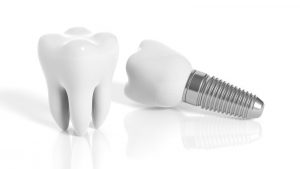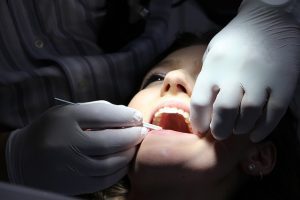While it may appear that the simple act of brushing and flossing your teeth is primarily aimed at maintaining fresh breath and a bright smile, it plays a smaller role in a much larger health equation. Your oral hygiene is intricately connected to various potential health issues, including diabetes and heart disease.
Often contributed to by inadequate oral hygiene, the accumulation of plaque can result in conditions like gingivitis and periodontitis. Both of these conditions foster the growth of harmful bacteria and trigger an inflammatory response that can potentially enter your body through the bloodstream and inhalation.
And now, recent studies have uncovered associations between oral hygiene and dementia. One study indicated a relationship between your dental health and the atrophy of the hippocampus, which is the shrinking of the brain’s learning and memory center. This atrophy is considered an indicator of Alzheimer’s disease (Mercola, 2023).
But what are the specifics of this connection? And how can you work to improve your oral health to prevent furthering health complications?
The Connection Between Alzheimer’s & Dental Health
An unhealthy mouth is a linear process that we can work to prevent and reverse before it escalates to other serious conditions. A consistent lack of proper oral hygiene over a period of time leads to the development of gingivitis, an inflammatory disease caused by the buildup of unhealthy bacteria and plaque leading to bleeding gums.
Gingivitis unchecked can escalate into periodontitis – and infection resulting in tooth loss. Periodontitis, commonly known as gum disease, is a potential factor in cognitive decline leading to Alzheimer’s (Mercola, 2023).
This indicates the bacteria in your mouth from gum disease and associated tooth loss has potential to access your brain cavity through infected areas of the mouth via the bloodstream. Additionally, individuals suffering from the impact of Alzheimer’s might see a decline in self-care including oral hygiene leading to faster development of the disease and its symptoms (Mercola, 2023).
Studies Support the Claim Oral Health & Dementia are Biologically Linked
There’s a growing body of studies on periodontal disease and dementias spurred by avid research on the mechanisms behind dementia and Alzheimer’s in the hopes of finding effective preventative and mitigative treatments.
In the course of this research, they’ve found two key periodontal bacteria which seem to become intertwined with other compounds that contribute to cognitive decline. This indicates that the development of Alzheimer’s and other dementias involves disordered interactions and exacerbation between periodontal bacteria, toxic proteins and cerebral inflammation (Sadrameli et. al. 2022).
It also appears as though the presence of Alzheimer’s correlates with increased periodontal antibodies, and that even in adults without dementia or Alzheimer’s, increased periodontal antibodies are associated with lower cognitive scores (Merchant et. al. 2023).
There is a reciprocal pathophysiological link as well between periodontitis and dementias. As any dementia progresses, there is a loss of manual dexterity and motor control. This leads to a decline in self-care, including dental care. This contributes to proliferation of pathogenic bacteria, which contributes to systemic inflammation, which contributes to cognitive decline, which contributes to motor decline, which results in declined oral care in a progressing cycle (Desta 2021).
Protecting Yourself from Gum Disease with On-Point Oral Care
We know the connection of oral health to Alzheimer’s primarily stems from periodontitis, known as gum disease. And we also know that risk of developing dementias increases by 2x within 10 years of a gum disease diagnosis. So how can we prevent developing periodontitis in the first place?
Start Early. Caring for your health isn’t limited to older adults; it is particularly impactful for individuals in their middle and young adult years. Since gum disease stems from a consistent lack of oral hygiene, establishing good practices at an early age can serve as a proactive measure to prevent it before it even begins.
Daily Practices. Implementing good daily practices into your routine is the first step in creating well-rounded oral hygiene. Start slow and begin by brushing twice a day and incorporate regular flossing and tongue scraping. These three things combined flush your mouth of harmful bacteria, prevent plaque buildup, and improve gum health.
Lifestyle. In line with other health advice, maintaining a healthy lifestyle proves highly effective in preventing diseases such as diabetes, heart disease, and Alzheimer’s. Try to minimize smoking, alcohol and sugary foods while striving to incorporate whole foods into your diet. Getting adequate exercise is also associated with decreased risk of developing dementias in older age.
Oil Pulling. An additional precaution to consider adding to your hygiene regimen is oil pulling using coconut oil, known for its antibacterial properties. Research indicates oil pulling can help reduce the bacteria in your mouth (Nazeem 2017).
Importance of Brain Health in Preventing Dementias
In addition to keeping your oral hygiene routine up to par, improving your lifestyle to incorporate brain healthy habits can work against a multitude of other health conditions.
Mental Health. A healthy brain is a healthy you. Proper self-care is shown in all sorts of ways, including taking good care of your mental health. Take the steps to improve your mental health through physical activity, mental stimulation like reading or crosswords, stress management, and social interaction.
Balanced Diet. Just like taking care of your oral hygiene incorporates a healthy diet, your brain health thrives on good nutrition and limited harmful substances like tobacco and alcohol. Also, don’t forget to hydrate!
Brain-Healthy Vitamins. Research has shown certain vitamins to be exceptionally effective for maintaining brain health. B-Vitamins like B12 and B6 were linked to slowing the rate of brain atrophy (Mercola, 2023). Additionally, Vitamin D and Magnesium are also shown to support healthy cognitive function. Please remember to consult with a healthcare professional before adding supplements to your routine.
All in all, the link between oral health and overall well-being is more significant than we might initially realize. The seemingly simple act of maintaining good oral hygiene through brushing, flossing and regular dental care is not just about fresh breath and a bright smile; it’s a crucial part of a broader health equation.
In addition to care at home, regular dental cleanings and checkups can help you stay on top of any emerging conditions. Talk to your local oral surgeon about what you can do to prevent or treat early signs of gum disease.
References
Desta, NT (2021). Pathophysiological association between periodontal disease and Alzheimer’s disease: Importance of periodontal health in the elderly.
Merchant, AT, et. al. (2023). Antibodies against Periodontal Microorganisms and Cognition in Older Adults
Mercola, Joseph (2023). Brushing, Flossing Could Help Protect Against Dementia.
Nazeem, et. al. (2017). Oil pulling and importance of traditional medicine in oral health maintenance.
Sadrameli, Mahtab, et. al. (2020). Linking mechanisms of periodontitis to Alzheimer’s disease.










